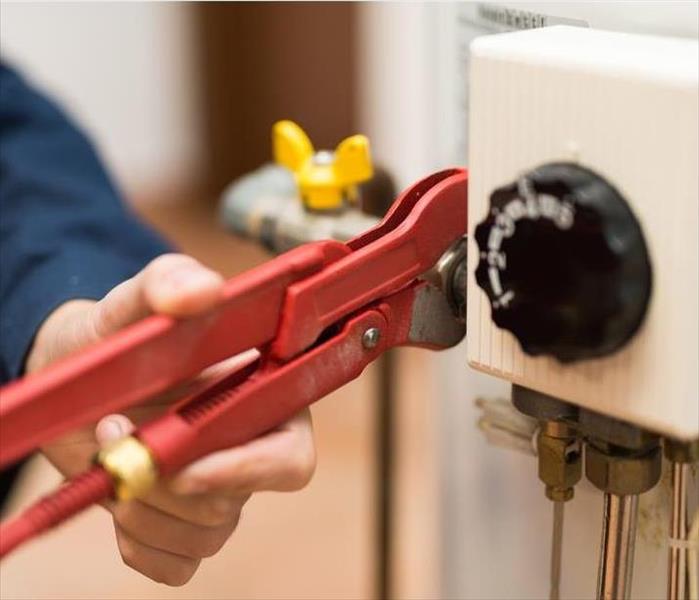My Water Heater Is Leaking: Now What?
3/17/2019 (Permalink)
Out of sight, out of mind: the home water heater is an easy appliance to forget when planning routine maintenance. Water pooling outside of the drain pan is a sign of trouble, and just mopping up the water around a leaking water heater will not solve the problem. Assessing where the water is coming from will determine the best course of action that you need to take to mitigate the risk of a failed water heater and resulting expensive repair.
Consider the Source
There are various reasons why you may have a leaking water heater:
- The gaskets and valves may have come loose from the water pressure flowing through the system.
- Pressure from the temperature setting being too high can cause leaks.
- Debris in the tank is also a common cause of leaking.
Turn the power off to the water heater before trying to manipulate any of the parts on the machine. Turning the unit's water switch on and off can help determine exactly where the leak is coming from.
Determine Where the Water Is Coming From
If the leak is minor and appears to be coming from a particular valve, tightening the valve with a wrench will probably do the trick. If the problem is more serious, such as water spraying from the middle or bottom of the tank, you will likely have some water damage. Call a professional to assess the water damage and ensure the repairs are done safely.
Know When It's Time To Replace the Water Heater
Water heaters do have a finite life cycle. Rust and corrosion are signs that the water heater is near the end of its useful life. A broken water heater needs to be replaced as soon as possible to eliminate the risk of extensive and expensive water damage.
A leaking water heater needs to be addressed quickly. Having the number of a plumber and water restoration expert in South Oceanside, CA, taped to your heater will give you the peace of mind that help is not far away.






 24/7 Emergency Service
24/7 Emergency Service
